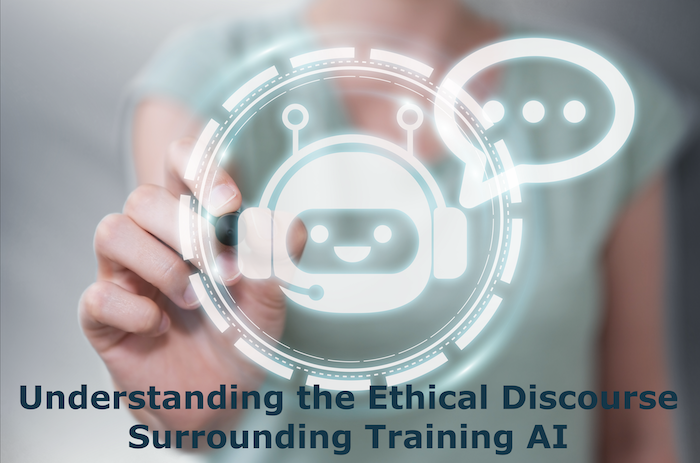
The rapid advancement of artificial intelligence (AI) technologies brings an almost endless list of ethical considerations that challenge our traditional norms and values. And that’s what people were worried about- you had world leaders and technology experts like Joe Biden and Elon Musk calling for a halt to the development of AI technology due to ethical concerns. The key is in the training. Read on to learn more about the ethical discourse surrounding training AI.
The Dilemma of Data Privacy
The data used to ‘teach’ these models is the issue. It uses an endless list of data supplies from the internet, including your data. If you don’t want that, you can look at opt-out guides to remove your data, but the issue could be that you don’t know where your data is.
As AIs learn to mimic human decision-making processes, they need that vast amount of data, often personal, raising significant privacy concerns. Ethical questions emerge about how data is collected, used, and shared. And the truth is, people don’t truly understand it.
Ensuring data privacy involves adhering to complex data protection standards and transparently communicating data usage to users (and for all users to listen) while balancing the need for comprehensive datasets.
Bias and Fairness in AI Algorithms
Another critical issue in the ethical discourse is the potential for bias within AI algorithms. In fact, bias has to be the biggest issue. AI systems learn from historical data – they can inadvertently perpetuate and amplify existing biases if the data is skewed or unrepresentative. How does it know any different? Well, it should be with training, but it isn’t always working.
Addressing this challenge needs a proactive approach to dataset curation and algorithm design to ensure fairness and inclusivity. Developers must continually test and refine their models to identify and mitigate biases.
Transparency and Accountability in AI Development
Transparency in AI development is essential – but the issue is that a lot of the information is out there; people just aren’t reading it. Instead, they’re signing up for services like ChatGPT without reading the fine print as to what data they will take from you/already have from you.
For the future, we’d say it’s about building trust and accountability, especially when decisions made by AI systems can have significant implications on individuals’ lives. There must be clarity about how AI models operate and the logic behind their decisions. They can do that with techniques like explainable AI (XAI), which provides insights into the decision-making processes of AI models.
How Will Ethical AI Training Evolve?
Ethical AI training is ongoing and evolving – it must be at the forefront of the training. As AI technologies become more sophisticated, so must the way we approach ethical training and deployment. That requires a commitment from all involved parties to engage with ethical challenges and to adapt strategies accordingly.
The issue is that people use AI technology like ChatGPT without realizing whether the information is ethically correct. One example is generative AI’s ability to develop deep fake images almost controlling the internet. How do we stop that?
The future of AI should aim to advance technology but in a way that aligns with broader societal values and ethical principles. Were deep fakes what AI developers had in mind for its technology? No. Is it one of the many ethical issues it must tackle? Yes.
Understanding the ethical discourse surrounding AI training is more than an academic exercise. It’s a critical undertaking impacting all levels of society. And there are still issues to address, as you can see from the introduction.



